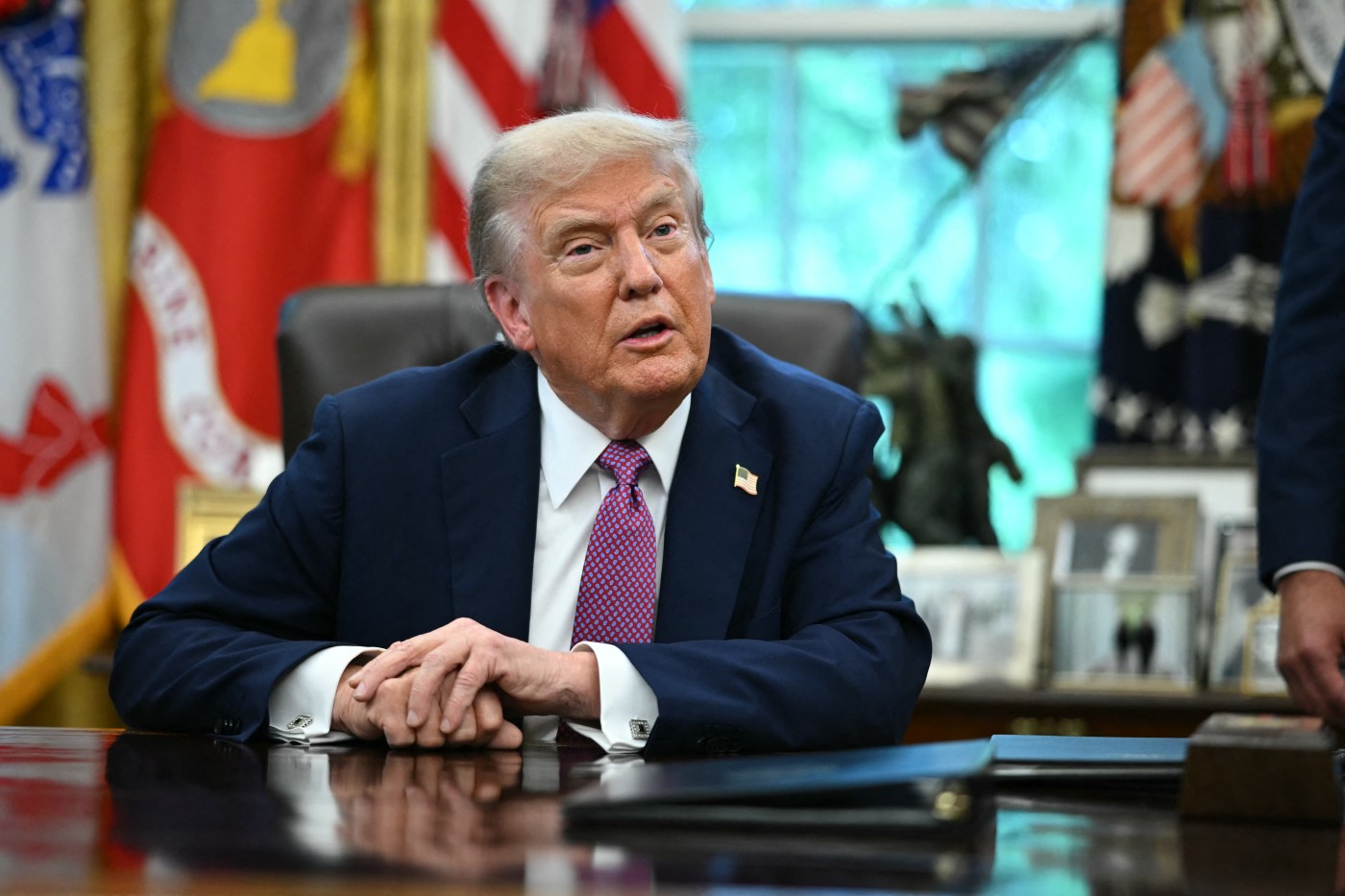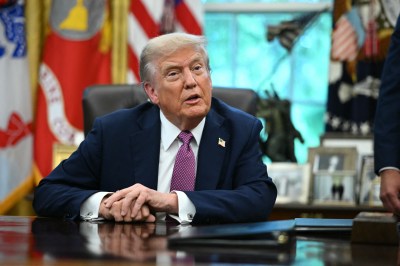On Labor Day, a post on the White House’s official X account lauded President Donald Trump for having generated $8 trillion in revenue for the federal government and celebrated his “protectionist trade policies” for creating $8 trillion in U.S. investment. The text of the post highlights the trade policies, while an accompanying graphic touts the tariff revenue.
Trump also claimed Tuesday that the U.S. has “taken in almost $17 trillion in investment … most of it has come in because of tariffs.”
None of the claims is accurate.
A Bipartisan Policy Center analysis of the Treasury Department’s daily statements shows that the federal government has taken in $158.4 billion in tariff revenue since January 21, the day after Trump’s inauguration. On August 22, the Congressional Budget Office updated past projections and now estimates that Trump’s tariffs on China, Mexico, and several other countries will reduce deficits by $4 trillion—over the next decade. Each year, the United States on average takes in $3 trillion in imported goods, which makes the claim of $8 trillion in tariff revenue just in 2025 nearly impossible.
The White House maintains on its website a list of pledges of investment by various companies and countries, most recently updated on September 2. The list includes private sector projects such as a “$600 billion investment in U.S. manufacturing and workforce training” by Apple, $500 billion by Nvidia to update its U.S. infrastructure, and $200 billion by Micron to boost its U.S. production of memory chips. And it includes pledges by foreign nations such as the United Arab Emirates ($1.4 trillion), Qatar ($1.2 trillion), and Japan ($1 trillion) to invest in the U.S.
Add up those amounts, and you get roughly $7.5 trillion. But there are several reasons not to take these pledges at face value. As Dispatch contributor and Cato Institute vice president Scott Lincicome has written, companies like Apple, Amazon, or the chip manufacturer TMSC often seek to gain favor with a new administration by promising multibillion-dollar investments. These often involve either expansions of projects already in the works or vague pledges that lack concrete time frames.
“Oftentimes companies that are actually pledging new investment will say they're going to do it based on market conditions,” Lincicome told The Dispatch. “Well, market conditions change, and suddenly what looks like a good investment isn't a good investment, and it never happens. Or, the timeline is hilariously drawn out, and so it might take 10 years to hit that number.”
Trump’s first term, Lincicome continued, featured a collection of multibillion-dollar pledges from manufacturing giants—ultimately, with mixed successes. “Some of it certainly happened, but a lot of it didn't, and some of it that did happen actually ended up collapsing. Look at [Magnitude] 7 Metals, this big aluminum company. [Trump trade adviser] Peter Navarro went out there and claimed this was the future of American aluminum, and it's closed down two years later.”
When asked to clarify, the White House did not offer further explanation for their Labor Day post or for Trump’s remarks.
“President Trump is right: tariffs are bringing in historic revenue for the federal government, revenue that will amount to trillions of dollars in the coming years,” White House spokesperson Kush Desai told The Dispatch in an email. “Tariffs made America rich once before, and tariffs will Make America Wealthy Again.”
If you have a claim you would like to see us fact check, please send us an email at factcheck@thedispatch.com. If you would like to suggest a correction to this piece or any other Dispatch article, please email corrections@thedispatch.com.






Please note that we at The Dispatch hold ourselves, our work, and our commenters to a higher standard than other places on the internet. We welcome comments that foster genuine debate or discussion—including comments critical of us or our work—but responses that include ad hominem attacks on fellow Dispatch members or are intended to stoke fear and anger may be moderated.
With your membership, you only have the ability to comment on The Morning Dispatch articles. Consider upgrading to join the conversation everywhere.